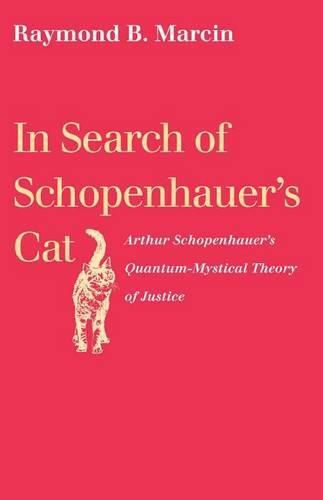Readings Newsletter
Become a Readings Member to make your shopping experience even easier.
Sign in or sign up for free!
You’re not far away from qualifying for FREE standard shipping within Australia
You’ve qualified for FREE standard shipping within Australia
The cart is loading…






Arthur Schopenhauer’s theory of justice is radical. Justice, in Schopenhauer’s system of thought, is not an epistemological construct. It is neither rights based nor process based. It rejects the concept of individual moral duty as vehemently as it embraces the concept of collective moral guilt. For Schopenhauer, justice is not a way of assessing reality. It is a facet of reality itself. Schopenhauer’s theory of justice is ontology-a study of being itself.
In this book Raymond B. Marcin offers several reasons why a review and a reevaluation of Schopenhauer’s theory of justice are worthwhile now, almost two hundred years after it was first formulated. One is that his theory of justice, based squarely on his philosophy of being (or ontology), seems remarkably consistent with the view of reality that is taking shape in the minds of contemporary quantum physicists. Albert Einstein called Schopenhauer’s writings wonderful, and Erwin Schroedinger called them beautiful. Another reason is that the metaphysical basis of Schopenhauer’s theory of justice bridges a gap that has long existed between Western and Eastern approaches to philosophy and may well have had an influence on the thought of Mohandas K. Gandhi. Yet another reason is that some contemporary jurisprudential movements with a strong social orientation have of late taken an interest in the concept of community. The idea of community in its most basic and most literal sense is at the heart of Schopenhauer’s deep ontology of justice. Finally, the concept of justice has almost always beenexamined from an epistemological vantage point. Seldom have we seen, outside the natural law tradition, a metaphysical or ontological examination of justice, and that is exactly what Schopenhauer gives.
$9.00 standard shipping within Australia
FREE standard shipping within Australia for orders over $100.00
Express & International shipping calculated at checkout
Stock availability can be subject to change without notice. We recommend calling the shop or contacting our online team to check availability of low stock items. Please see our Shopping Online page for more details.
Arthur Schopenhauer’s theory of justice is radical. Justice, in Schopenhauer’s system of thought, is not an epistemological construct. It is neither rights based nor process based. It rejects the concept of individual moral duty as vehemently as it embraces the concept of collective moral guilt. For Schopenhauer, justice is not a way of assessing reality. It is a facet of reality itself. Schopenhauer’s theory of justice is ontology-a study of being itself.
In this book Raymond B. Marcin offers several reasons why a review and a reevaluation of Schopenhauer’s theory of justice are worthwhile now, almost two hundred years after it was first formulated. One is that his theory of justice, based squarely on his philosophy of being (or ontology), seems remarkably consistent with the view of reality that is taking shape in the minds of contemporary quantum physicists. Albert Einstein called Schopenhauer’s writings wonderful, and Erwin Schroedinger called them beautiful. Another reason is that the metaphysical basis of Schopenhauer’s theory of justice bridges a gap that has long existed between Western and Eastern approaches to philosophy and may well have had an influence on the thought of Mohandas K. Gandhi. Yet another reason is that some contemporary jurisprudential movements with a strong social orientation have of late taken an interest in the concept of community. The idea of community in its most basic and most literal sense is at the heart of Schopenhauer’s deep ontology of justice. Finally, the concept of justice has almost always beenexamined from an epistemological vantage point. Seldom have we seen, outside the natural law tradition, a metaphysical or ontological examination of justice, and that is exactly what Schopenhauer gives.